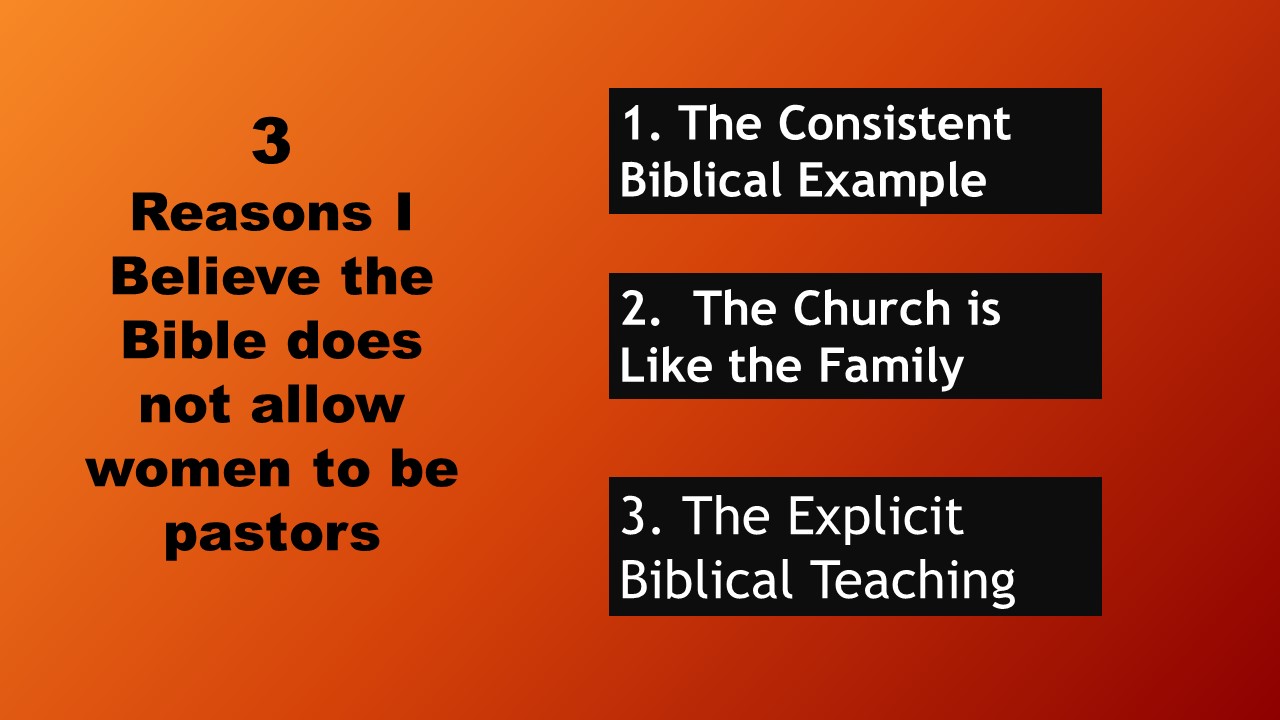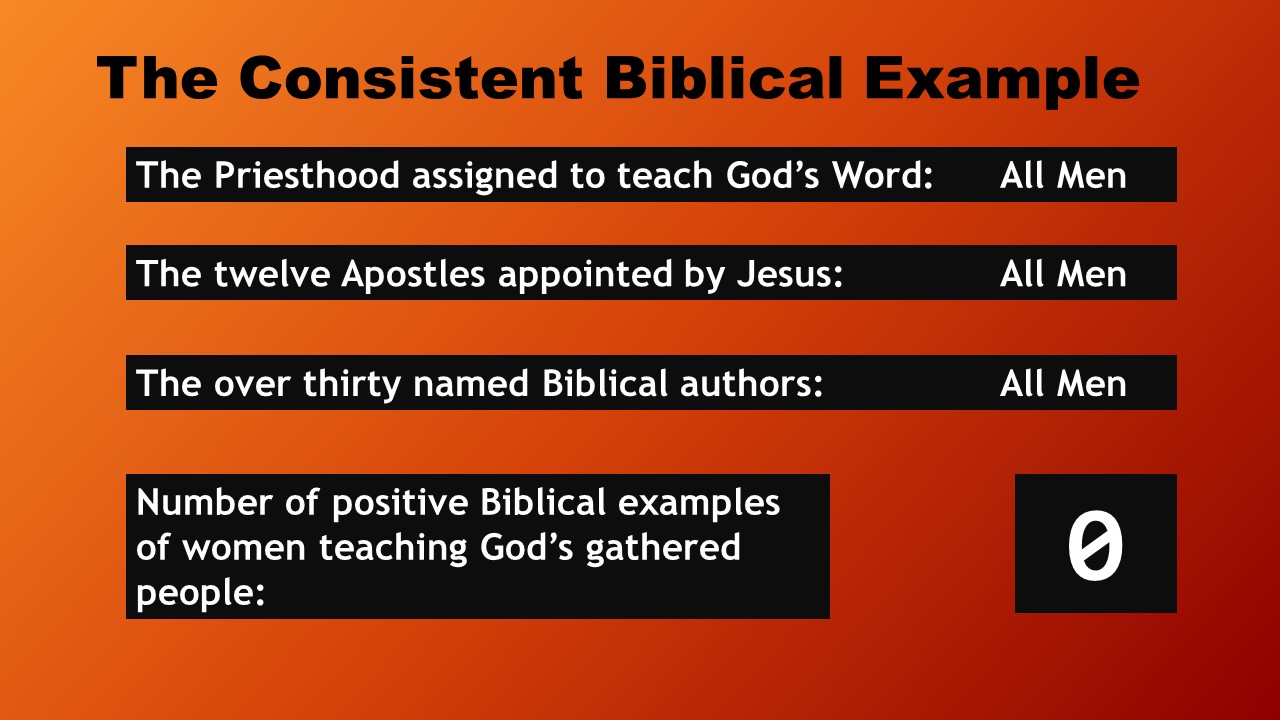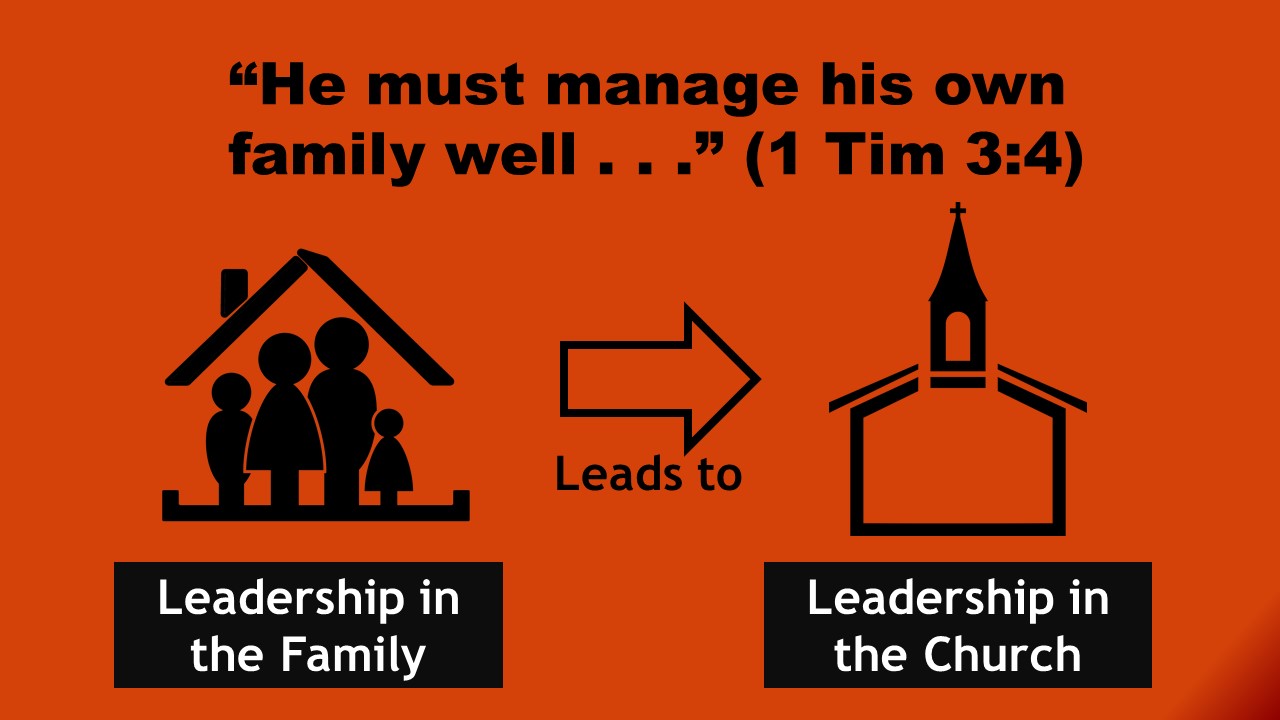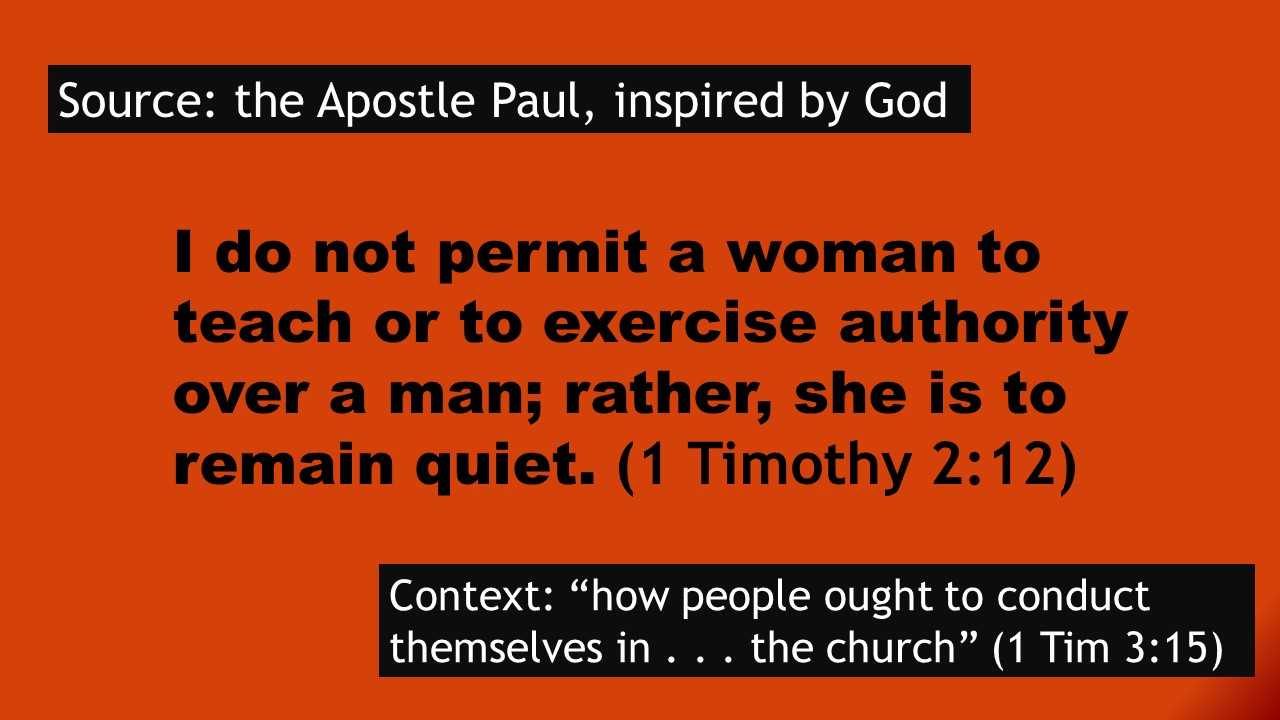- Jun 1, 2017
- 893
- 744
- 59
- Country
- United States
- Faith
- Christian
- Marital Status
- Married

When I discuss women pastors in this blog, I am referring to women in pastor positions which involve teaching men in a group and/or exercising authority over the whole church, including men. This would include all Senior Pastor positions. I am not addressing women serving as a pastor over women’s ministries or children’s ministries, which I believe the Bible allows.
I am convinced that the Bible does not allow women to serve as pastors. There are three main reasons. Each reason provides strong evidence on its own, and when combined these three lines of evidence leave no reasonable doubt about the Bible’s position on this issue.
1. The Consistent Biblical Example

In the Bible, all the examples of people who were called by God to teach gathered groups His Word were men.
In addition to offering sacrifices and serving in the temple, God assigned the priests to “teach the Isrealites all the decrees the LORD has given them through Moses” (Leviticus 10:11). The Old Testament priests were all men.
The twelve apostles were called to teach God’s Word. They were all men.
We don’t know with certainty who God inspired to write some of the books of the Bible. But the Bible names many of its own authors. Of the approximately 30 named authors of the Bible, every one of them is a man.
In fact, there is not a single, clear, explicit positive example anywhere in the Bible from Genesis to Revelation of a woman teaching the gathered people of God.
What about Deborah, you ask? No, the Bible only says she judged by sitting under a tree and settling the disputes of people who came to her. I’m not saying it’s impossible that she taught gathered groups God’s truth, but the Bible does not explicitly state this.
What about women prophets? No. There are women prophets in both the Old and New Testament. However, the Bible consistently separates the role of prophecy and the role of teaching. In the New Testament, if any prophecy was given in a church meeting, the prophecy was to be evaluated by others (1 Corinthians 14:29). During this evaluation, the women were to be silent (1 Corinthians 14:34).
What about Priscilla? No. Along with her husband, she privately taught Apollos, which is different from teaching the congregation as a pastor.
There really is not a single example in the Bible of a woman serving in a role that is equivalent to the job of a Senior Pastor. Was this merely an accommodation to cultural norms? No. Jesus Himself appointed the twelve apostles, and Jesus had the authority and courage to go against cultural norms, and He often did! Many women were among Jesus’ followers, and they serve as very positive examples and effective, powerful witnesses. However, for the role of teaching the whole church His truth, Jesus chose twelve men.
#2 The Church is Like the Family

The Bible clearly and repeatedly teaches that the husband is the head of his family. The Bible teaches this by teaching that children should obey their parents, and by teaching that the husband is the head of his wife (Ephesians 5:23). This truth is also seen in the verses which instruct wives to submit to their husband’s leadership (Ephesians 5:22, 24; Colossians 3:18; 1 Peter 3:1).
It makes sense that leadership in the family prepares one for leadership in the church, which is God’s family. In fact, the Bible makes good leadership of one’s family a requirement for pastors:
1 Timothy 3:4-5 He must manage his own household well, with all dignity keeping his children submissive, for if someone does not know how to manage his own household, how will he care for God's church?
The church IS family, so it is appropriate that since God appoints men to lead in their families, He also appoints men to lead in His churches, which are our spiritual families.
#3 The Explicit Teaching of the Bible

The wording and context of 1 Timothy 2:12 are so clear and simple that this verse should settle the dispute about women serving as pastors. The context of this verse is a letter with instructions about conduct in a local church (1 Timothy 3:14-15). Just four verses after 1 Timothy 2:12, Paul begins to give instructions for choosing elders (whom the Bible also calls pastors or overseers in other places). So this verse does not mean that women cannot teach men math or physics or history, and it doesn’t even mean that a woman can’t teach a man something from the Bible in a private setting. It means that women can’t teach men in the gathered church setting as a Senior Pastor does. I’m not saying this is the only application, but it is certainly the primary application.
Those who come from an egalitarian viewpoint have endlessly attacked this verse by combinations of distorting its obvious meaning and denying its Biblical authority. Then, after endless attacks, they basically say, “This verse is so controversial, we shouldn’t base our conduct on it”. In this way they undermine not only this specific teaching, but the authority, clarity, and trustworthiness of God’s Word in general.
One of the most common attacks on this verse is to claim that it was only meant to apply to a specific situation in Ephesus, where Timothy was instructing the church. However, the reasons Paul gives for His instruction in 1 Timothy 2:12 are found in the next couple of verses and have nothing at all to do with a local situation in Ephesus:
1 Timothy 2: 12 I do not permit a woman to teach or to exercise authority over a man; rather, she is to remain quiet.
13 For Adam was formed first, then Eve;
14 and Adam was not deceived, but the woman was deceived and became a transgressor.
Since Paul bases His instructions on events related to the creation of Adam and Eve and their fall, his instructions must apply to all of us.
Finally, in addition to 1 Timothy 2:12, two other verses state that overseers/elders must be the husband of one wife (1 Timothy 3:2 and Titus 1:6). Obviously only a man can be a husband.
Please Don’t Distort this Biblical Teaching
I’m not saying women cannot or should not be very active in many different types of ministries. My wife and I were blessed to serve the Lord for 14 years in Indonesia. We have often said that one of our most fruitful investments during that time was pouring our lives into, discipling, and training three Indonesian Christian ladies. One of these ladies was the only person we sponsored to attend Bible college. Sponsorships for Bible College was not our main focus, but we saw her potential. All three women have continued to play leadership roles in very challenging ministries since we left. That those roles do not involve teaching a gathered church or exercising authority over men does not diminish their value.
Conclusion
The direct teaching of Scripture, the Biblical role of men as the head of their families, and the consistent example of the whole Bible, all demonstrate that only men should serve as pastors.
Two notes:
1. Feel free to copy and use the graphics in this article.
2. This is a lightly modified version of an article originally posted on my blog.
